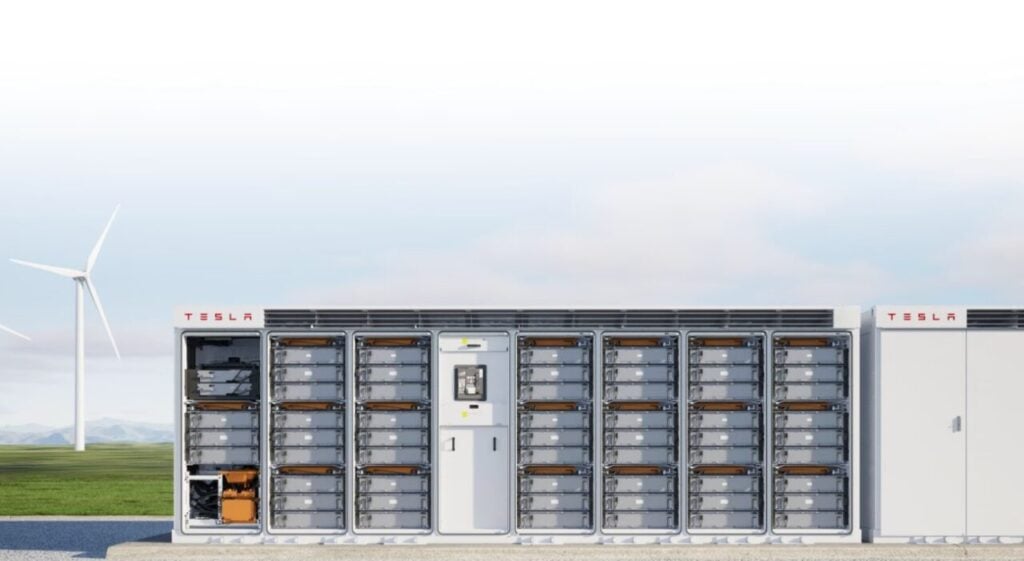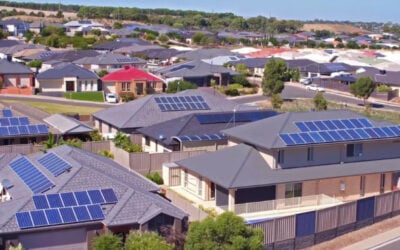
Georgia Power has secured a battery and equipment supply agreement (BESA) with Tesla for a 500MW/2,000MWh BESS portfolio made up of four projects of varying sizes under development by the investor-owned utility (IOU).
A Georgia Power announcement revealed details of filings submitted to the Georgia Public Service Commission (PSC) on 16 August, as the utility seeks the regulator’s approval for the portfolio buildout. It did not however mention the battery deal with Tesla, along with accompanying EPC agreements.
Enjoy 12 months of exclusive analysis
- Regular insight and analysis of the industry’s biggest developments
- In-depth interviews with the industry’s leading figures
- Annual digital subscription to the PV Tech Power journal
- Discounts on Solar Media’s portfolio of events, in-person and virtual
BESS portfolio to address resource shortfall for 2026/27 winter
Georgia Power is seeking expedited PSC approval of the BESS portfolio, put forward by the utility to address 2026/27 winter resource shortfalls it recently identified in its 2023 Integrated Resource Plan (IRP) Update, as reported by Energy-Storage.News last year.
Details of the four Georgia projects can be found in Table 1.
| Name | Location | Capacity (MW/MWh) | Technology type | Commercial operation date (COD) |
| Robins BESS | Warner Robins, Bibb County | 128/512 | Co-located with solar | June 2026 |
| Moody BESS | Valdosta, Lowndes County | 49.5/198 | Co-located with solar | May 2026 |
| Hammond BESS | Rome, Floyd County | 57.5/230 | Standalone | November 2026 |
| McGrau Ford II BESS | Ball Ground, Cherokee County | 265/1,060 | Standalone | September 2026 |
As part of its 2023 IRP Update released last year, Georgia Power revealed its plans to install battery storage facilities at the site of two operational solar projects at Robins and Moody US Air Force Bases, despite these details being presented as new information in the recent press release from the utility.
The Robins and Moody BESS facilities will utilise existing interconnection infrastructure and be charged primarily from the co-located solar resource, although they will also have the ability to charge from the grid.
The proposed Hammond BESS will be located at the site of Georgia Power’s retired Hammond coal-fired power plant and will also use existing transmission infrastructure utilised by the fossil fuel generating station before it was taken offline in 2019.
Georgia Power is also adding a second BESS phase to its McGrau Ford location, building on the 265MW first phase provisionally approved by the PSC as part of the utility’s 2022 IRP. Georgia Power hopes to leverage the work it has already completed on the first phase, saving the utility both money and time.
Battery units from US manufacturing plant
All four projects will comprise Tesla’s 3.9MWh 2XL Megapack’s which utilises lithium-iron phosphate (LFP) battery technology manufactured at the company’s megapack factory in Lathrop, California.
Georgia Power stated in its recent PSC filing that Tesla will guarantee consistent battery capacity and maintain round-trip efficiency at the four sites for the expected 20-year lifespan of the projects under a long-term commitments agreement (yet to be signed).
As reported in Energy-Storage.News, Tesla’s Lathrop megapack manufacturing facility has already reached an annual production capacity of 20GWh, with the company expecting this figure to double by the end of 2024.
Engineering, procurement and construction contracts
During August 2024, after carrying out a “comprehensive” supply chain RFP process, Georgia Power entered into EPC agreements with Burns & McDonnell for the Robins and McGrau Ford projects, and Crowder Industrial Construction (Crowder) for the Moody and Hammond BESS developments.
Under these fixed prices agreements, the two EPC contractors will be responsible for the
engineering, design, procurement and construction of balance of system components, civil grading, and on-site equipment installation.
During the second quarter of this year and before execution of the EPC agreements, Georgia Power issued the two contractors a limited notice to proceed (LNTP), giving them the green light to begin initial engineering and subsurface studies.
Georgia Power stated it did this in order to mitigate the issue of “accelerated long lead times” associated with engineering and procurement, allowing the contractors to finalise equipment choices and be ready to place equipment orders upon immediate contract execution.
Cost confidentiality
Georgia Power stated in its filings with the PSC that it intends to pay for the construction of these projects through its rate base. However, any information relating to the costs associated with the agreements were redacted under PSC Rule 515-3-1-.11 that protects utilities from having to disclose anything it considers a trade secret.
Despite these costs being in the public interest, Georgia Power stated that making this information available would undermine its future ability to negotiate the best prices and contract terms, potentially reducing benefits to customers through higher overall contract and equipment costs with third-party suppliers.
Georgia Power said it will make use of any tax credits available through the Inflation Reduction Act (IRA) and pass those benefits onto customers.
Expedited BESS RFP to further address shortfall
As part of Georgia Power’s 2023 IRP update, it also identified a 531MW capacity shortfall for the 2027/2028 Winter, which the utility will address through a “narrowly tailored” RFP for BESS resources.
Further details of the recently PSC-approved procurement can be found here in a dedicated docket for the RFP.






